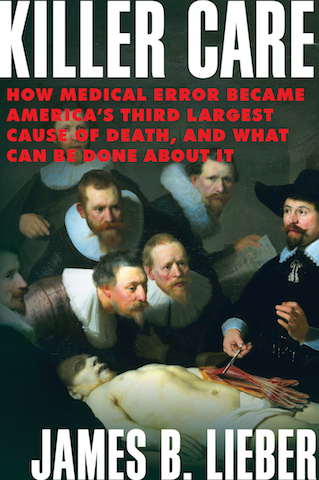National Academy of Sciences (NAS)
See the following -
16 Cancer Causing Foods You Probably Eat Every Day
It’s probably not something you think about every day, whether or not the foods you are eating could contain carcinogens, but with almost 1.5 million people diagnosed with some type of cancer just last year, perhaps it’s time to look at what is in our foods that could be causing such a huge number of new cancer patients. Here is a list of the top 10 foods that you most likely consume every day that may contain carcinogens or be suspected of causing cancer...
- Login to post comments
DHS Agrees To Outside Study On Cancer Risks Of Airport Body Scanners
The Transportation Security Administration has tapped the National Academy of Sciences to probe the health risks of body scans to passengers and pilots after years of pressure from civil liberties groups and Congress. The study is limited to radiation and safety testing, and will not examine the privacy implications of the X-ray machines, according to a new contracting notice. Read More »
- Login to post comments
DHS Health Care IT In Disarray
The Department of Homeland Security last year deployed a multi-million dollar electronic health record system to provide end-to-end health care services for the tens of thousands of illegal immigrants currently held in DHS detention facilities. But a new report by the health arm of the National Academy of Sciences shows the department has largely failed to provide its own employees in high-risk jobs with even the most basic health services and has yet to deploy an electronic system capable of capturing information on employee health, safety and readiness...
- Login to post comments
Killer Care: How Medical Error Became America's Third Largest Cause of Death, And What Can Be Done About It
 ...The following year, researchers shook the profession with an article in Health Affairs entitled “‘Global Trigger Tool’ Shows that Adverse Events in Hospitals May be Ten Times Greater than Previously Measured.” Dr. David Classen, who did the seminal research for global triggers, served as lead author of the study, which looked at three mid-size to large (ranging from 550 to 1,000 beds) teaching hospitals associated with medical schools in the West and Northwest that participated on the condition of anonymity...When different detection methods were applied, global triggers found over 90 percent of events, the government’s Patient Safety Indicators (based on discharge summaries) found 8.5 percent, and voluntary reporting disclosed only 2 percent (afraid of censure and malpractice, doctors and nurses seldom willingly self-accuse). Classen, et al. warned: “reliance on voluntary reporting and the Patient Safety Indicators could produce misleading conclusions about the current safety of care in the U.S. health-care system and misdirect efforts to improve patient safety.”...
...The following year, researchers shook the profession with an article in Health Affairs entitled “‘Global Trigger Tool’ Shows that Adverse Events in Hospitals May be Ten Times Greater than Previously Measured.” Dr. David Classen, who did the seminal research for global triggers, served as lead author of the study, which looked at three mid-size to large (ranging from 550 to 1,000 beds) teaching hospitals associated with medical schools in the West and Northwest that participated on the condition of anonymity...When different detection methods were applied, global triggers found over 90 percent of events, the government’s Patient Safety Indicators (based on discharge summaries) found 8.5 percent, and voluntary reporting disclosed only 2 percent (afraid of censure and malpractice, doctors and nurses seldom willingly self-accuse). Classen, et al. warned: “reliance on voluntary reporting and the Patient Safety Indicators could produce misleading conclusions about the current safety of care in the U.S. health-care system and misdirect efforts to improve patient safety.”...
Pollution From China Is Hitting America's West Coast
Pollution from China travels in large quantities across the Pacific Ocean to the United States, a new study has found, making environmental and health problems unexpected side effects of U.S. demand for cheap China-manufactured goods. Read More »
- Login to post comments
The Biggest Threat To The Economy Could Come From Outer Space
Imagine waking up just after midnight to a sky so bright you swear it must be early morning. Imagine seeing the Northern Lights as far south as Cuba or Hawaii. Imagine that the same phenomena behind both has also generated electric fields in the ground strong enough to power small electronics. That's what happened in 1859, when the earth was struck by the most severe geomagnetic storm ever recorded. Read More »
- Login to post comments
The Criminology Of Firearms
JURIST Guest Columnist Don Kates of The Independent Institute says that empirical evidence has shown that gun bans are not only ineffective at reducing violent crime, but may even be counterproductive... Read More »
- Login to post comments
U.S. Missile Defense Strategy Is Flawed, Expert Panel Finds
After two years of study, a panel of top scientists and military experts working for the National Research Council has concluded that the nation’s protections against missile attacks suffer from major shortcomings, leaving the United States vulnerable to some kinds of long-range strikes. Read More »
- Login to post comments
VA Harnesses Big Data For Broader Impact
Dr. Stephan Fihn is sitting on the edge of a revolution at the Department of Veterans Affairs, where big data is becoming easily accessible for clinicians and analysts throughout its 160 hospitals. Read More »
- Login to post comments
Why The Smart Grid Might Be A Dumb Idea
Foreign hackers don't just pose a threat to classified material, corporate secrets, and individual privacy. Security experts say the greatest cyberthreat to the United States is the fact that the Chinese and Russian governments—and possibly other players—have succeeded in hacking into the nation's electric grid, giving them the ability, if they wish, to bring the U.S. economy to a screeching halt with the click of a mouse. Read More »
- Login to post comments